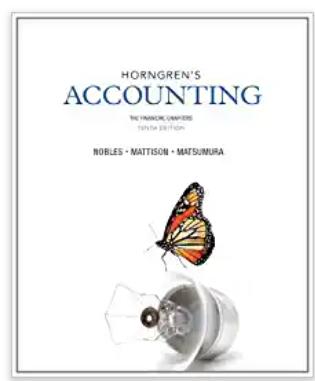Question
Joint Product Cost Allocation Timberlake Sawmill manufactures two lumber products from a joint milling process. The two products developed are mine support braces (MSB) and
Joint Product Cost Allocation
Timberlake Sawmill manufactures two lumber products from a joint milling process. The two products developed are mine support braces (MSB) and unseasoned commercial building lumber (CSL). A standard product run incurs joint costs of $300,000 and results in 60,000 units of MSB and 90,000 units of CBL. Each unit of MSB sells for $2 and each unit of CBL sells for $4.
Required:
a. Calculate the amount of joint costs allocated to each product on a physical-units basis. (2 marks)
b. Calculate the amount of joint costs allocated to each product on a relative-sales value basis. (2 marks)
c. Assume the commercial building lumber is not marketable at split-off but must be further planed and sized at a cost of $200,000 per production run. During this process, 10,000 units are unavoidably lost; these spoiled units have no value. The remaining units of commercial building lumber are saleable at $10 per unit. The mine support braces, although saleable immediately at the split-off point, are coated with a tarlike preservative that costs $100,000 per production run. The braces are then sold for $5 each. Using the net-realizable-value basis, calculate the amount of joint costs allocated to each product, and compute the completed cost assigned to each unit of commercial building lumber. (6 marks)
d. If Timberlake Sawmill chose not to process the mine support braces beyond the split-off point, the contribution from the joint milling process would increase or decrease by what amount? (5 marks)
Step by Step Solution
There are 3 Steps involved in it
Step: 1

Get Instant Access to Expert-Tailored Solutions
See step-by-step solutions with expert insights and AI powered tools for academic success
Step: 2

Step: 3

Ace Your Homework with AI
Get the answers you need in no time with our AI-driven, step-by-step assistance
Get Started


